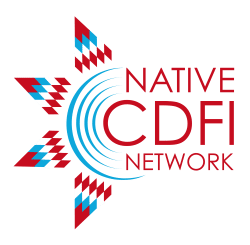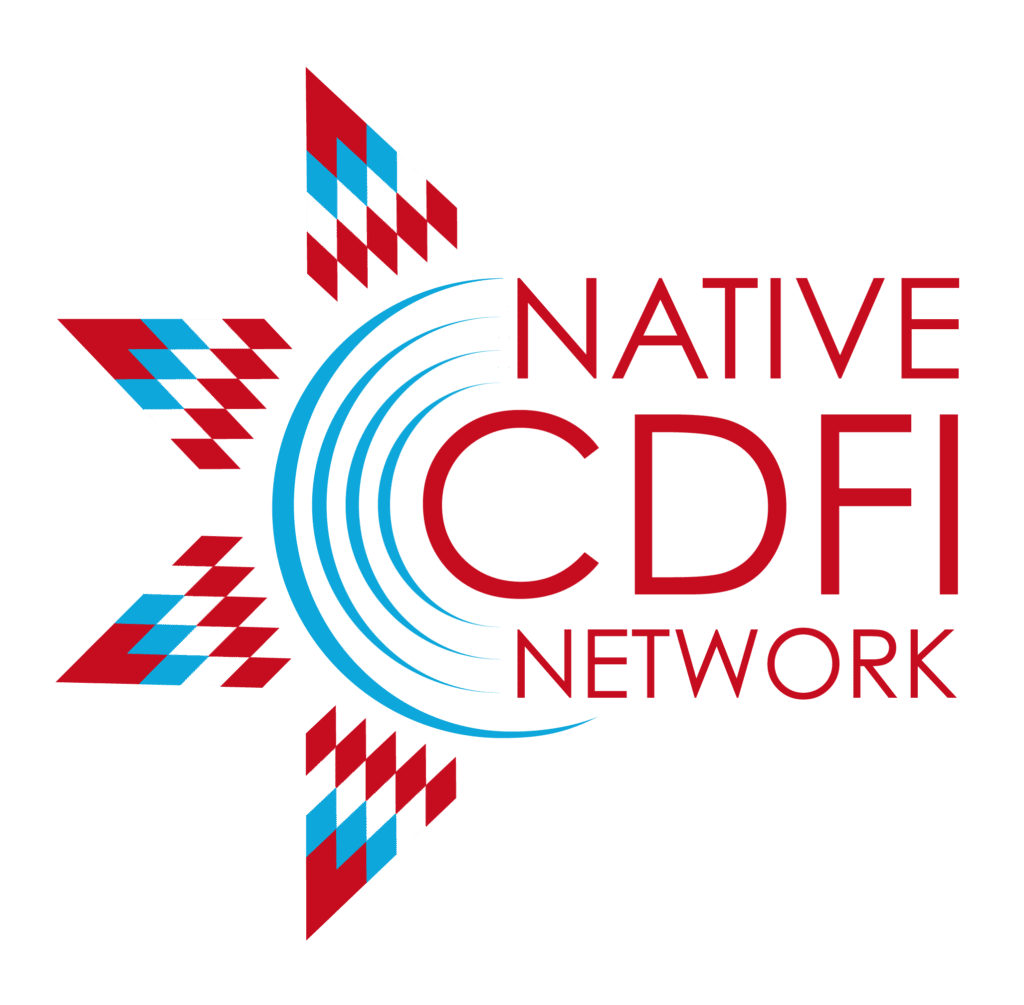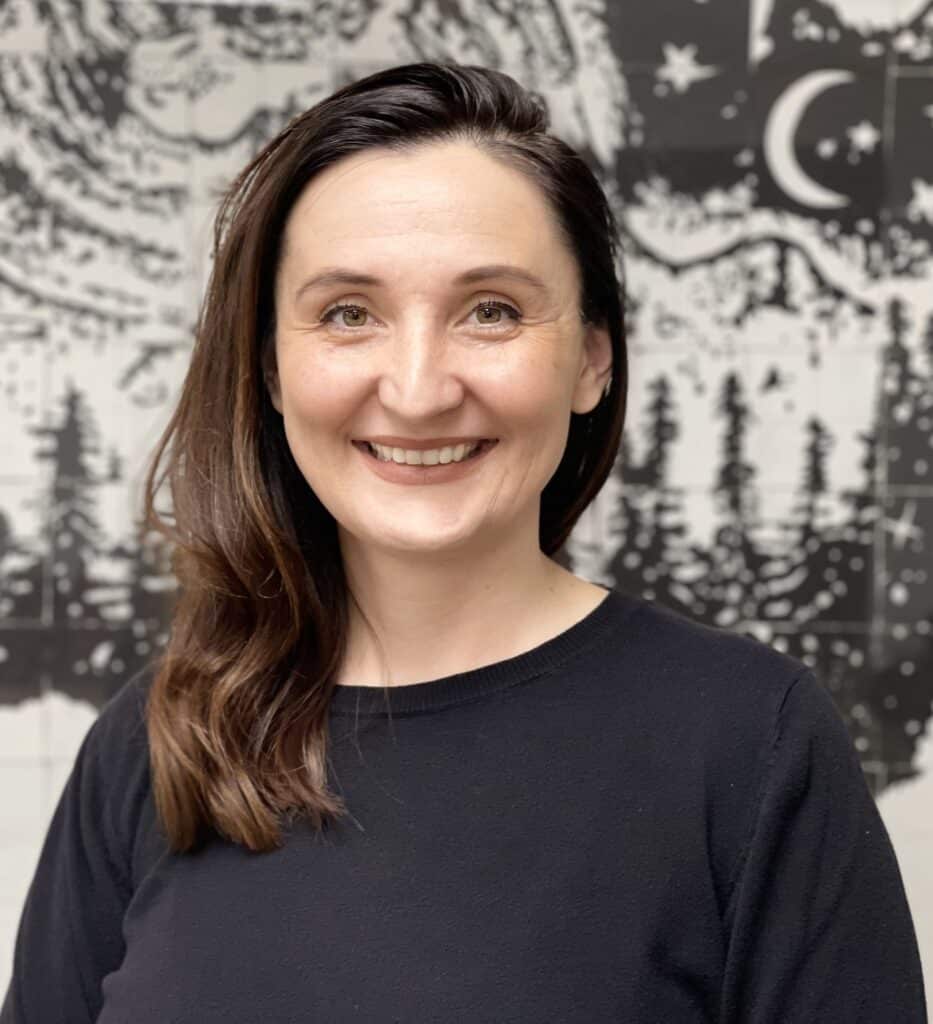
An enrolled member of the Cheyenne River Sioux Tribe, Lakota previously served as Assistant Director at Four Bands for five years. She also serves on the Executive Committee for the South Dakota Native Homeownership Coalition, and as Board Treasurer for Akiptan, a Native CDFI serving and supporting Native agricultural producers nationwide. Lakota obtained her master’s degree in Social Work from Washington University in St. Louis, where she focused her studies on Indian Country economic security and social development.
In this uplifting conversation with NCN, Lakota shares Four Bands’ “timeless” Theory of Change and how it drives the CDFI’s integrated approach to entrepreneurial development and asset building. She also stresses the importance of Native CDFI leaders learning from one another as they sustainably grow their organizations.
NCN: Greetings Lakota, it’s good to have you with us today.
Vogel: Thank you. I’m happy to be here.
NCN: Why do you do what you do? How did leading Four Bands become your life’s calling?
Vogel: I’ve always been drawn to challenging opportunities, things that people normally don’t pursue. After I graduated from the University of Notre Dame, my goal was to become an FBI special agent, but there was an age limit. You had to be 25 to begin the special agent process, and I was only 23. So I had attended a few lectures at Notre Dame, and one of them was Teach for America. When they were sharing Teach for America’s locations, they didn’t have a lot of stars on their map within Indian Country. That was a big red flag for me. I raised my hand and asked some questions and it led to a relationship with a recruiter, who told me more about the program. I applied and became a high school special education teacher on the Rosebud Sioux Reservation. Not many people select the special education category. But I said, “Why not?”
That path led me to discover some rural systems that are broken, especially for individuals who are trying to transition out of high school and into their community as participating citizens in their society. There’s also not a lot of systems set up for students with disabilities or individuals with disabilities. So I went on to get my master’s in social work to help create those systems for individuals with disabilities. As part of my studies, I had to interview an American Indian leader I thought was inspiring, so I interviewed Tanya Fiddler, who was Executive Director of Four Bands at that time. Listening to the passion she had for the work really inspired me. She mentioned they were restructuring the organization to hire an assistant director and I was a few months away from graduation, so it lined up well. I came home and took the job.
NCN: As you know, there are more than 70 federally certified Native CDFIs across the country and many more “emerging” CDFIs following in their footsteps. Why did Native communities feel it necessary to create CDFIs, and what fundamental role do they play?
Vogel: Our population still cannot access financial systems the way the rest of America can. We’re continuously asking, “Why?” Some of it gets back to the individuals and exposing our clients to a certain level of technical assistance, which CDFIs provide. Then there’s another level of advocacy work we do that pulls on the levers of systems of change, because there’s something broken with how America recognizes our markets. There’s words like “risk” that are thrown on our markets that aren’t appropriate. They haven’t ever been analyzed to see if that word is appropriate for our markets. The institutions that control the building of wealth aren’t serving us the way we want to be served, so we end up thinking, “Well, let’s create our own.” The best tool for that is the CDFI tool, because we get to fundraise money and say, “This is what my community wants. This is what we’re going to do and how we’re going to do it.” It’s amazing work, honestly, with the flexibility you have if you’re community minded.
NCN: What do policymakers, philanthropy, and the general public who aren’t familiar with Native CDFIs need to understand about them and the difference they make?
Vogel: It’s most prominent in the mortgage industry – the misunderstanding of what a CDFI can do. There’s a psychological issue called functional fixedness that humans have where you’re given a tool and the more often you use that tool, the less creative you get. So financial world folks, they’re trained through education and constant reiteration on a specific way their tool can be used. They lose the ability to see that tool being used in a different way, in a different market, because they become functionally fixed on what it can do. Now I’m looking at ways to get capital into the community. I’m exploring the many tools out there and trying to mold them into what fits for our community. We’ve got to untrain those in the financial world and unwind what they’ve learned about how to most effectively use their tool and open their minds to what it could look like in this market.
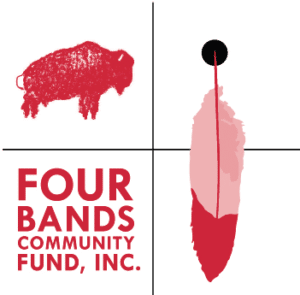
Vogel: Our Theory of Change has withstood the test of time, the many different products we’ve created for our markets, and our expansion and scalability into different markets. Our founders – Stewart Sarkozy-Banoczy and Tanya Fiddler – deserve a lot of credit for solidifying that theory of change for us. It is composed of four quadrants, which is helpful to think about when it comes to our Lakota values and teachings. The first is Educate. Anybody who walks in our door, we educate them about this game of credit. We don’t talk about it enough in school systems and daily conversation, so the least we can do is talk to them about this thing called credit – that it’s a number that follows you around like a thought bubble whether you want it to or not. It’s there, and here’s how it moves up and down. That’s the bare minimum they walk out knowing. What that looks like practically is we pull credit scores for our community regularly and discuss it with them. After that, Education also includes small business development classes, pre-mortgage and post-mortgage counseling, that kind of stuff.
If after all that education, they’re deciding, “Hey, I want to look at one of the financial tools you’re offering,” they move into the Finance phase, the second quadrant, and that is any of our loan products. After and during Finance, you can’t just push people out of the nest and expect them to fly. You must continue to Incubate and offer services or post-loan and technical assistance. Then you also must remember advocacy. So Advocate is our fourth quadrant – that ours is a story that needs to be told. You must continue to advocate, even if it’s to your tribal council who are setting the rules for small business licensing, all the way up to your national level with things like the Community Reinvestment Act regulations. So Educate, Finance, Incubate, and Advocate is the Theory of Change. We work in, fundraise for, and assign staff to each of those quadrants.
NCN: Four Bands recently built a business incubator featuring a 5,000-square-foot space for new businesses. Why did Four Bands take this step and how is the incubator taking shape?
Vogel: We have the third quadrant, Incubate, which was always meant to be a physical space, but building a physical space in a rural community is hard, especially as a nonprofit. There’s not many funders to help you offset capital outlay costs like construction costs. It took us 19 years to develop enough revolving loan fund principal return and unrestricted capital to invest in the land and then develop it with partners. We know after 20 years of funding the small business community that commercial market rates and the costs to update rural infrastructure are really expensive for those start-up organizations. If you’re a small business running a great food selling program out of your home and you want to expand into a kitchen, you’re going to most likely get an older building built in the 1940s in your community that doesn’t have updated electrical, water, etc. Those costs are really expensive for a start-up entrepreneur, especially when they’re just testing their market. We know that building a building and putting those amenities into it offsets the costs for start-up entrepreneurs and allows them to test their product or service on the market. We have six leasable spaces in the new building and by us moving out of our space, we opened up two more. It also opened our minds to becoming a developer. Previously, we were just a loan servicer doing loans, technical assistance, and training, but now we are thinking more broadly about what it looks like to invest and build in communities that are underestimated and overlooked. It sends a message to your community members that they’re worthy, this is a place to build things, and there’s opportunity here. We like that feeling. We’re looking to develop other properties because the incubator has been successful. Our community loves that it’s revitalized our downtown.
Previously, we were just a loan servicer doing a lot of loans, technical assistance, and training, but now we are thinking more broadly about what it looks like to invest and build in communities that are underestimated and overlooked. It sends a message to your community members that they’re worthy, this is a place to build things, and there’s opportunity here. We like that feeling.”
NCN: Recently, Four Bands was one of two Native CDFIs to participate in the USDA’s Section 502 Native Home Loan Demonstration Project. Why did Four Bands choose to participate and how did it turn out?
Vogel: We wanted to address the homeownership gap in our market. We asked ourselves, “Do we have enough mortgage capital on hand to do these on our own?” We just didn’t feel prepared enough unless we could pilot it. It’s a scary space to jump into because it’s a lot of capital for one loan. It’s also scary to think if the loan defaulted what sort of reputation you would have in your community as the evictor. So we did a lot of reflection. Finally, with support from the South Dakota Native Homeownership Coalition, we partnered to unlock federal funding and leverage our own. USDA was our best partner there with the 502 Program. It’s been successful in that we have the relationships on the ground, they lent us the money, and we deployed what we could. But there’s still a problem with the mortgage market and us getting continued capital to support the demand. It’s been the hardest thing to fundraise for the length of term. You can usually get investment capital for 5 to 10 years pretty easily, but to get the term you need to do mortgages, it’s really difficult. But what it’s doing is it’s exposing us to a different group of investors than we’ve ever had exposure to.
NCN: Four Bands has helped a great number of people. Is there an individual client success story that really sticks out to you, that really inspires you?
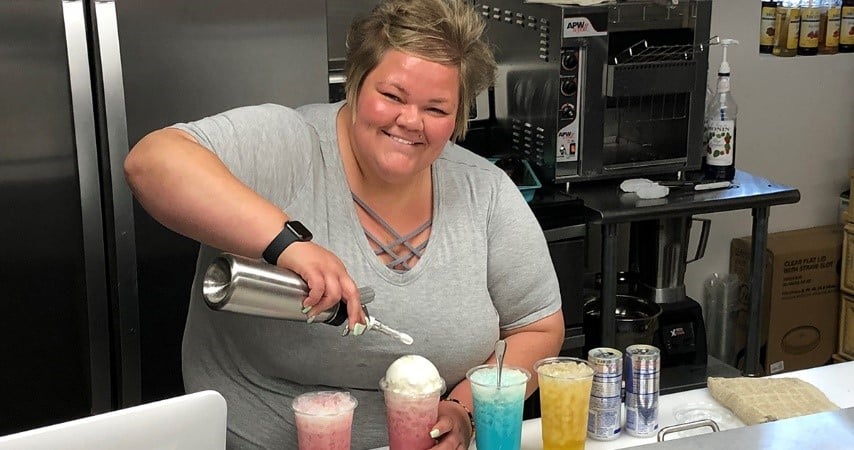
Vogel: We have eight-year relationships with all of our clients, like coffee shop owner Kelsie Kay, who came in with credit issues. She wanted to figure out her credit and managing her credit card balances and better ways to support her family. She then moved herself into ideation and dreaming up a coffee shop. So we helped her test the market by supporting her with technical assistance, and she would make coffees for different local markets and run them to the markets. She then dreamed up her coffee shop space in our incubator. She did so well during COVID that she was able to purchase a business in downtown Eagle Butte. It was a funeral home that she converted into a coffee shop with a loan through us. It required updating electrical and water, but she now runs a successful coffee shop business, and has created a coffee culture in our town. So here you’re used to drinking Folgers or something like that, but she’s actually taught people what a latte is!
NCN: From your perspective, what do Native CDFIs like yours need to realize their full potential? What support do they need to achieve their missions and maximize their impact
Vogel: At this stage in our growth, I need advice. I need somebody to help me look at our balance sheet and talk about better ways to move money, because idle money sitting in our savings accounts is wasted money. There are ways to keep moving money, and I need that higher-level sophistication of running a successful business so interest can be returned to Four Bands to make it more sustainable. We’re exploring more revenue-generation models like becoming a mortgage broker and possibly creating a realty division and then making fees off that. I am looking for more internal revenue-generation models that also contribute to mission because we’re creating services our community still needs that don’t exist. We always need access to capital and liquidity. Recently, I was able to triple the amount of capital I got out the door because it was coming in from various sources during the COVID crisis. If we could continue to get that level of funding, we could keep meeting the demand in our communities. But all of us are undercapitalized, and we need access to longer-term, more appropriate capital for our markets.
To learn more about Four Bands Community Fund, please click here.
